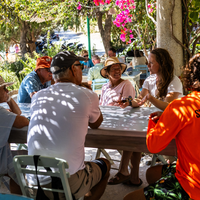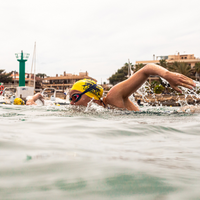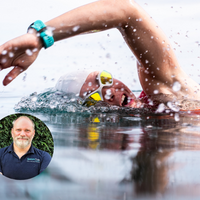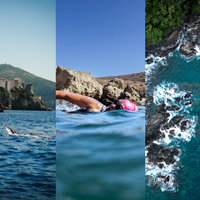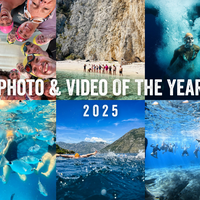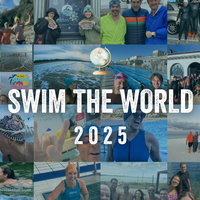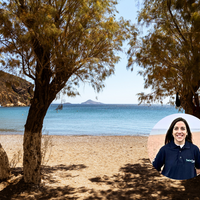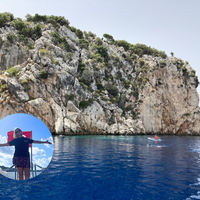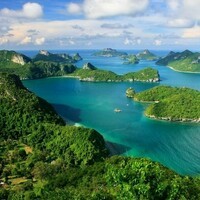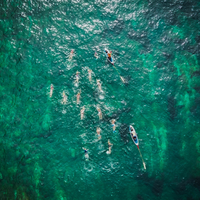Debut author. Double British Champion. First Black woman ever to swim for Great Britain. Who better to speak to than Rebecca Ajulu-Bushell for the second interview in our 'SwimTrekkers' series?
There will always be boundaries in swimming - that much is clear to us from an early age.
When we first meet water it greets as both an ally and a bully. Sometimes it dunks us, throws us down and shoots up our noses. Other times it seems to convey us along like a torpedo. Eventually, we learn the folly of flailing at the surface and gasping for air. So, we gradually mimic our fellow mammals instead, who've made a playground of the sea.
In this series, we aim to meet interesting swimmers from around the world, seeking out inspiring individuals whose relationship with water sets them apart from the crowd. We'll descend right down into the silty depths of open water and learn from masters of the pool as well. Ultimately, we hope to meet swimmers from all the many spawning ponds of life and to inspire more of you to take the plunge as well.
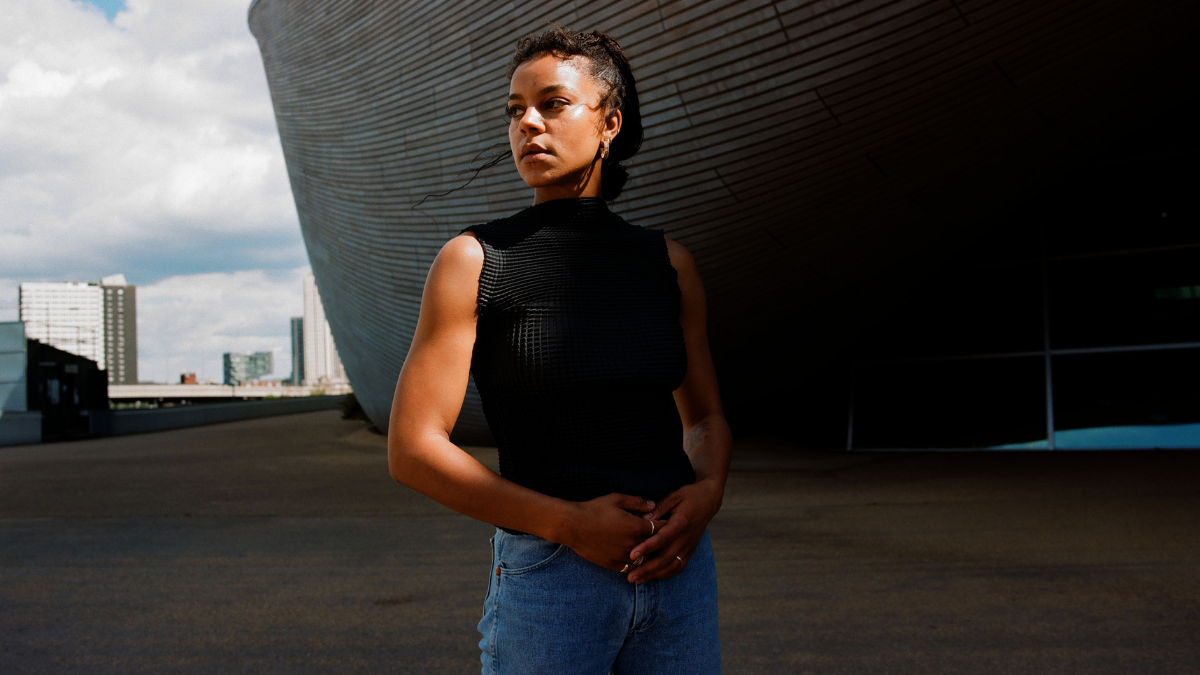
For this installment, we chatted to author and ex-elite swimmer, Rebecca Ajulu-Bushell. She talks about feeling like an outsider on the competitive stage, overcoming fears of open water, and the intensity of training at the highest level of pool swimming. Her career spanned 10 years and during that time she became a world number one and British champion - she won the 50m and 100m breaststroke in 2010.
There will always be conceivable boundaries... and, there will always be those who transcend them:
‘What are your first memories of being in water?’
Rebecca: 'I'm from East Africa, Kenya, and my father is 'Luo', which means that we're from a tribe that's around the shores of Lake Victoria. That lake is the biggest body of water in Africa, possibly in the world. I'm not sure if it's bigger than the Great Lakes in Canada. Anyway, it's this huge lake, and my first memory of being in water was there. I was really scared of water when I was younger.'
'I don't know why that is. There are a lot of cultural implications: water fear, and the black and brown community. My mum's white, my dad's black, and so I would go into the water, but I'd have to wear a rubber ring, and armbands, and a floaty vest. My mum would have to hold me, and I'd be like: "You can't [let me go]!" You know, I was just terrified. Then I think we were in Uganda, I think it was my third birthday, and I swam in Lake Victoria, and that's kind of my first real memory of actually feeling in communion with the water.'
'After that I took all of my armbands and floaty vests off, and that was it - I never got out of the water. I loved it forever!'
‘...I swam in Lake Victoria, and that's kind of my first real memory of actually feeling in communion with the water.’
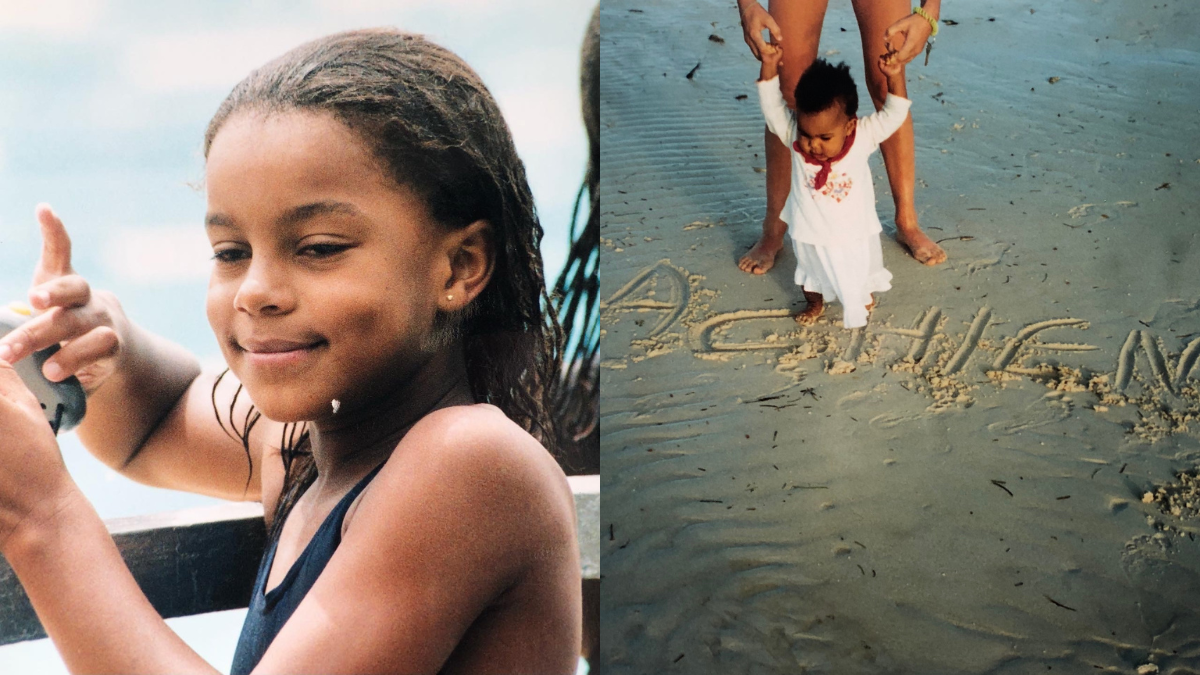
‘Did you meet wildlife in Lake Victoria?’
Rebecca: 'I'm certain. I think I was too young to be freaked out. I mean, I grew up in Kenya, in Nairobi, but obviously we spent a lot of time kind of upcountry, out in the bush. I remember when I moved back to the UK, I was 13, and I would see badgers, and hedgehogs, and I just thought they were so exotic. They were really strange because I'd just grown up with kind of zebras, and giraffe, and buffalo, and whatever, and I kind of thought that was quite normal.'
'Hippos kind of freaked me out a little bit, but Lake Victoria, I think is just, there's lots of tilapia, lots of fish.'
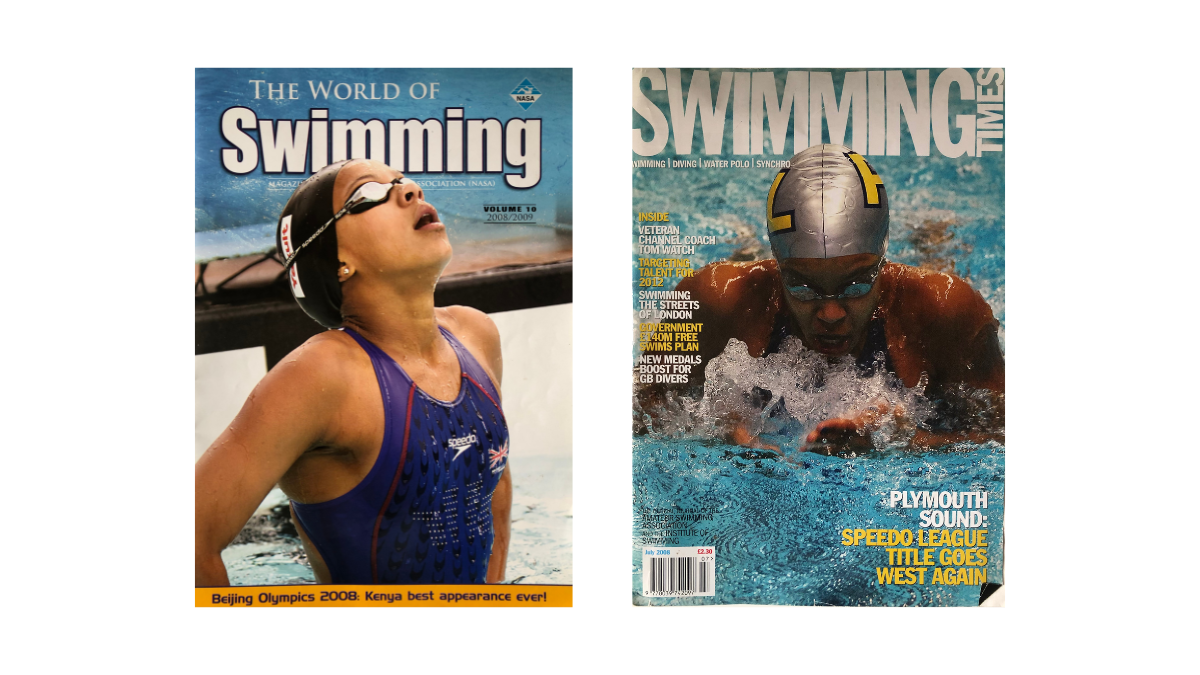
'Do you remember what first made you want to pursue swimming as a sport?'
Rebecca: 'I always tell this story: I did my first competition when I was six years old in this 25-metre pool at my school in Kenya. I think I did 25 metres freestyle and I'd never... like I'd never done a competition before. It was a little school's gala, or something. I was just so fast. I was so good. I'm so naturally at home in the water and I did all of these races that day and I won them all. I came home, this is actually really indicative of what I'm like as a person, but I drew my mum this picture when I got back, and it was this little brown girl, in a little costume with a red ribbon. She had a medal around her neck, and I was like this is me when I win the Olympics, and then that was it from six years old.'
'I think competitiveness is very much in my family. That's a strong trait. I think being the eldest child, and you know my mum and I had a not particularly straightforward or easy upbringing, we didn't have a lot of money when we were growing up. She made me pretty tough. My dad's a bit of a fighter as well, but neither of them could swim at all. I think actually my mum taught my dad to swim, when he was... he must have been like 45, or something.'
'I think competitiveness is very much in my family. That's a strong trait...'
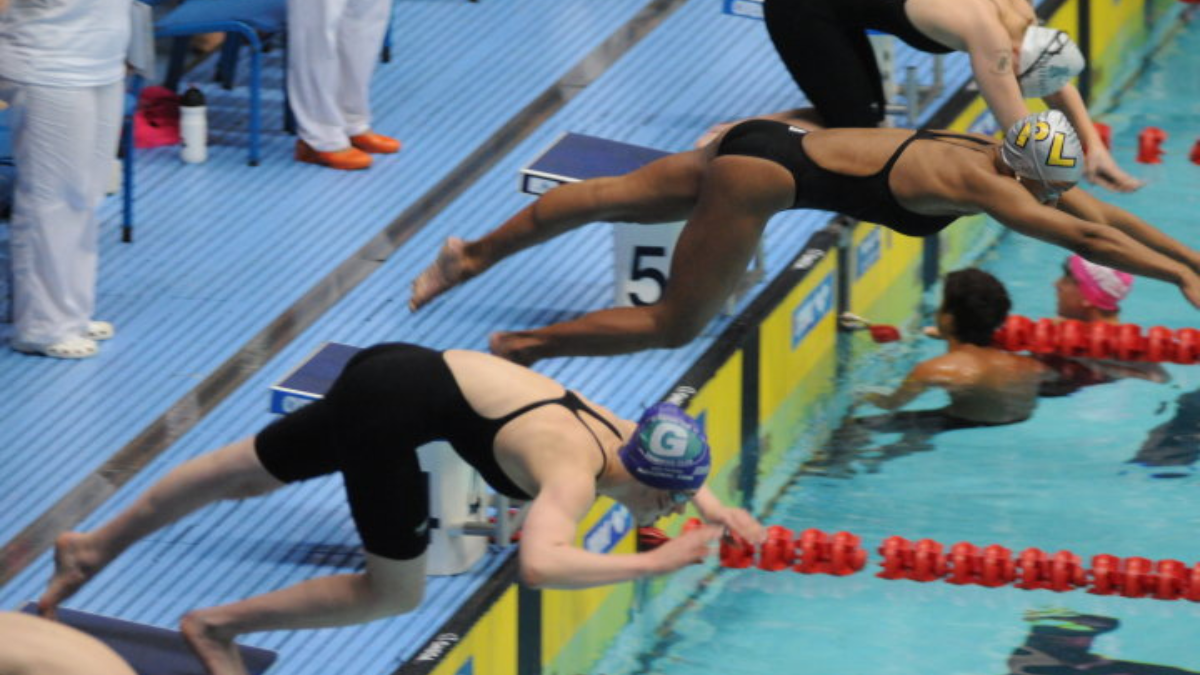
_'I think my mum did not know what she was getting into, you know with the mornings, and the driving, and the poolside, and it just takes over your whole life. My dad wasn't around. My dad left before I was born, but my mum, yeah, she was the real OG. She did the whole thing. She knew everyone's times, and she'd like write them down in the program. She was hardcore, she was a pusher.'
'You need it though. I think it's a really strange thing and I write about this in the book, the relationship between that triad of parents, coaches, athletes, and then success in the sport, kind of at the centre of that triangle. As a parent, you have to decide where the line is, and I think that's a really difficult position to be in.'
'You start so young, and you're pushing your body beyond what's possible, or, you know, beyond what limits you think exist. There are days you come home from training, and you're like bawling your eyes out. You're like: "I don't want to do it anymore, like, I hate it". Your mum's like: "You have to go back to training tomorrow morning. If my mum hadn't done that, you know, I never would have got where I did.'
'My mum, yeah, she was the real OG...'
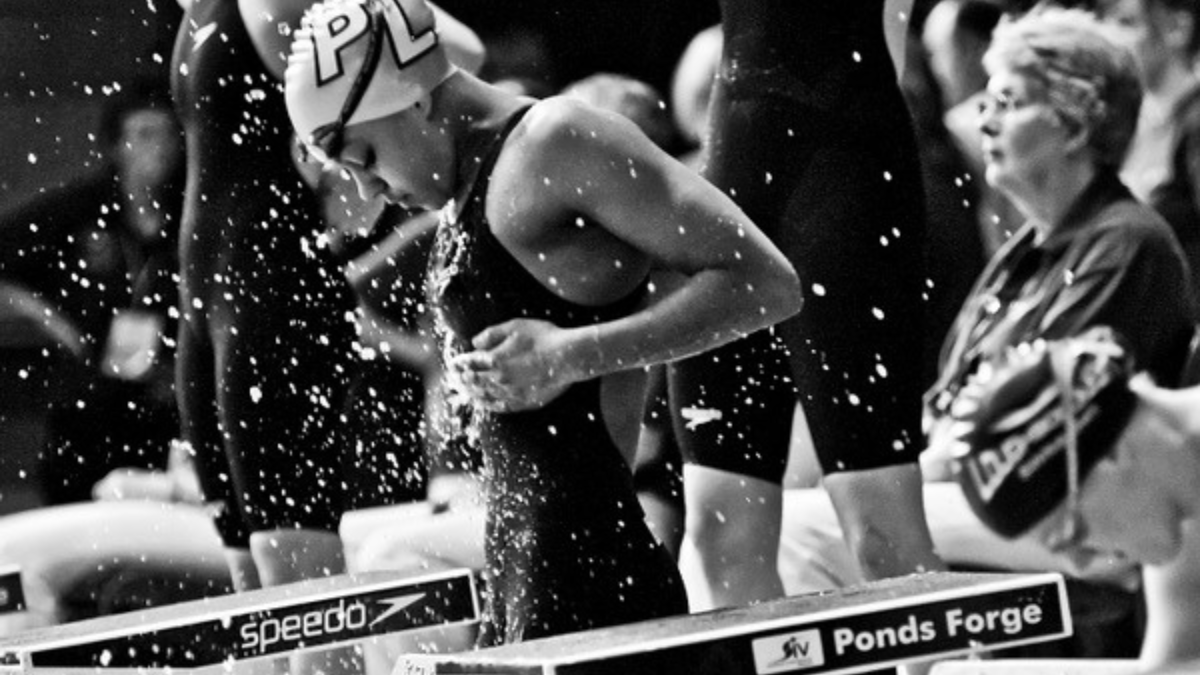
'Could you give us an idea of the intensity of training for that level of competition?'
Rebecca: 'Proofs of the book have started to go out, and both swimmers and non-swimmers are reading it. I'm always really surprised when people come back to me, and they're like, I didn't know you trained that much. I was like: "What do you think we were doing all the time?" They were like: "Wow, it's A LOT of training." I'm like: "Well, yeah, of course it's a lot of training." So, I guess at the height of my career, I was training in the pool eight to nine times a week.'
'I would be up at 4.45am most mornings. Then I'd be in the pool by 5.15, and I'd swim until 7.30, 7.45, so you'd get a good 8 to 10k in the morning sometimes, depending on whether it was a threshold or aerobic set. Then in the evenings it was always a mix of low-level A2 drills, and then you do 2 or 3 sprint sessions a week.'
'I was a sprinter. On top of that, we did weights. On top of that, we ran lots and lots of plyometrics and stretching. I mean, you're just in pain all the time, right? You're just, like, constantly, always in pain. The weeks were always the same. Sunday was the only day you had off. Most of the time we ran on Sundays and then you wake up and do it all over again. 50 weeks a year. Every single day.'
'I was short distance, but one of the prevailing physiological beliefs about swimming is that when you're young, you've got to get your threshold and aerobic capacity up as high as possible. So, you want to develop your lung capacity, you want to develop your endurance ability, and then if you are a sprinter, or if that's the way your body is inclined, you become that way as you mature into the sport.'
'The goal is just swim as much as possible, basically. I left Kenya when I was 10 and moved to Cape Town for three years, and that's, kind of, where swimming got really serious. Before I moved back to the UK, and it got even more serious. My dunk in the deep end was I had these two crazy Hungarian, like Eastern Bloc coaches. I was super young. I was like 10, and we'd swim in this pool in South Africa, which had this broken pump. It was 18 degrees. It was horrible and I was just crying into my goggles, like, all session.'
'We just did 16 times 50 metres butterfly, just again and again, and that was really, really hardcore. So when I went to the UK, although it was a step up in terms of mileage and commitments, my Eastern Bloc coaches made me ready for that.'
'You're just in pain all the time, right? You're just, like, constantly, always in pain.'
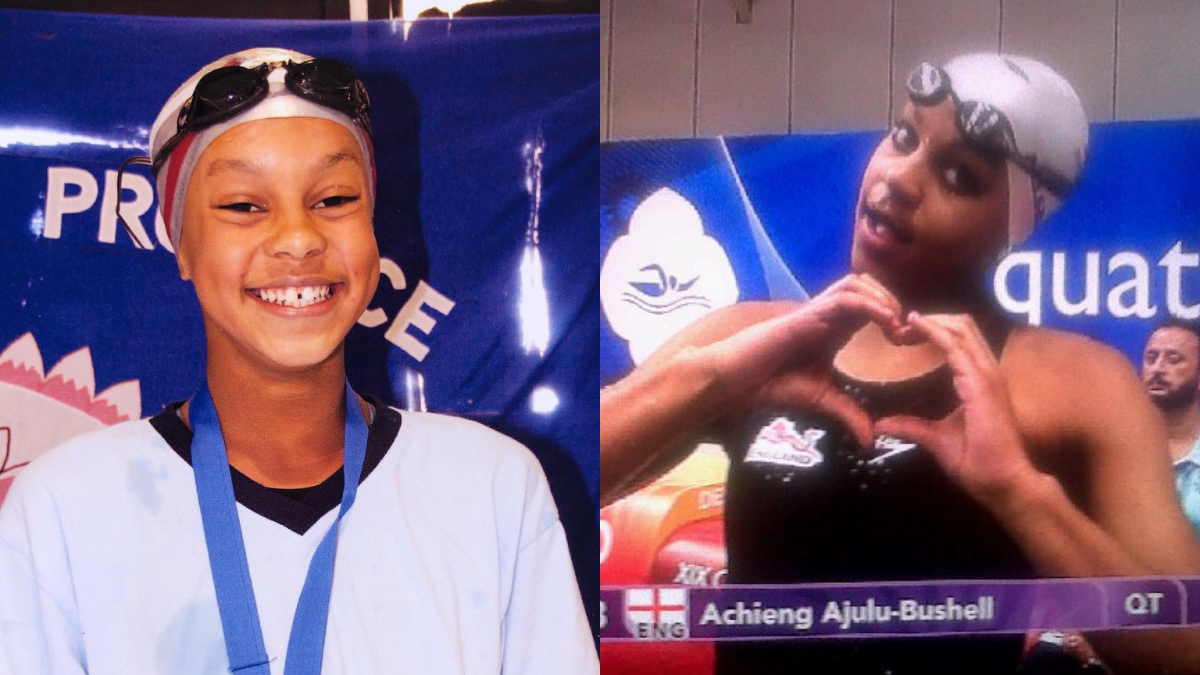
'Your first book These Heavy Black Bones is out this summer, published by Canongate Books. How would you describe it to readers? And what has the writing process been like for you?'
Rebecca: 'I've always wanted to write, and I love words as much as I love the water. Maybe even more. The writing process was amazing. It was almost, kind of, swimming itself. It's such a solitary sport, and it's a very, kind of, indulgent experience. It's also very immersive, like, being in the water. I think that helped me write a lot of the physicality of swimming into the book. I really wanted people to feel at some points in the book, like you're in my body, and you're swimming with me. So, I love the writing process, which I think is bizarre, most people don't necessarily find that particularly easy, or the easiest part, but I really enjoyed the solitary nature of it.'
'What is the book about? The book is about race, and racism within institutions, in this specific context the institution of elite sport, and swimming specifically. I was the first Black woman to swim for Great Britain. The book charts my career's ascent, and that story of being different, being looked at, being the best, struggling between the tension of those two things.'
'[On feeling like an outsider as a young athlete]: I should have talked about it more when I was younger. I think that's a really hard piece of advice to give your younger self. You just want to fit in, you don't want to be different. I think there's a lot of power in just embracing your outsider status, whatever that might be. I think the book was my way of owning it, and maybe sucking out the poison a little bit, but also taking it back for myself. I wish I could have owned that a little bit earlier.'
'It's also a coming-of-age story, it's about teenagehood, and that was really a fun part to write. I wrote about being in a boarding house, and all the other swimmers, you know, and boys, and all the drama that comes with. So that was enjoyable, but I think, mostly, it's just an ode to intensity. It's about the ecstasy of peak physical performance, and what it feels like, and I think it's broadly relatable in that way.'
'If you love anything so much, that you feel so, kind of, consumed by it. Then there's something in the book for you.'
'[The book is about] the ecstasy of peak physical performance, and what it feels like... If you love anything so much, that you feel so, kind of, consumed by it. Then there's something in the book for you.'
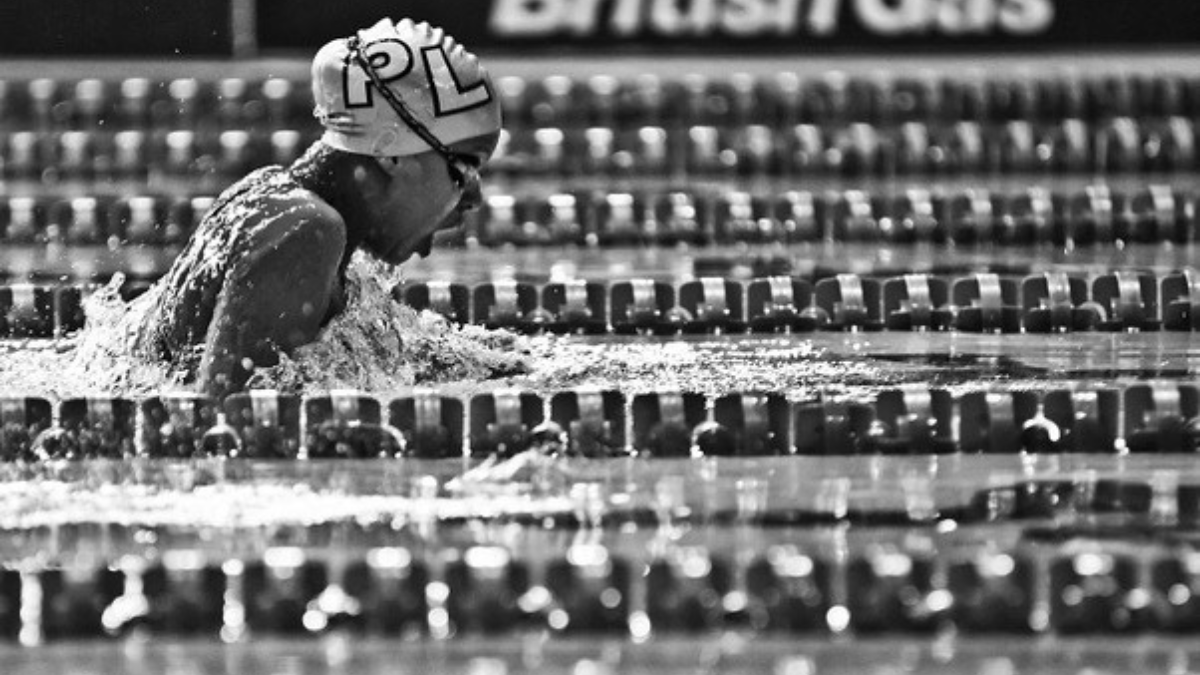
'Do you have any thoughts on pool versus open water swimming?'
Rebecca: 'I have a lot of reverence for the water, and I think that you need to have a lot of respect for the open water, and knowledge as well. I think they're completely different things. You know, I love racing in a pool, because of the clinical nature of it. It's just you, and this distance that's exactly 25 metres, and the clock just ticking down, down, down, down, down... and that's one feeling.'
'There's such an intensity to open water. When I was living in South Africa, I did a lot of beach lifesaving, and I had to do my run, swim, run, which is the first test that you do, and it was 8am in Long Bay. It's this massive beach, and I was just terrified of being eaten by a shark. I was just absolutely terrified. I did the run, swim, run, so quickly, because I was actually like: "I've got to get out of the sea". That's a context very specific to Cape Town, and white sharks. It's just a very intense thing that I think you have to learn, and you have to love, and you have to be very aware that you can lose the battle to open water very easily. I also think mastering that fear is really, really, really rewarding.'
'There's something about the open water that's just, I don't know, it just feels like being alive. It's a very beautiful experience, but, yeah, it's scary, and I think it should be. I think you have to lean into that, like, it's not something to be taken lightly. It's very intense.'
'You kind of have these small battles with yourself, and you overcome them, and it's a very personal thing.'
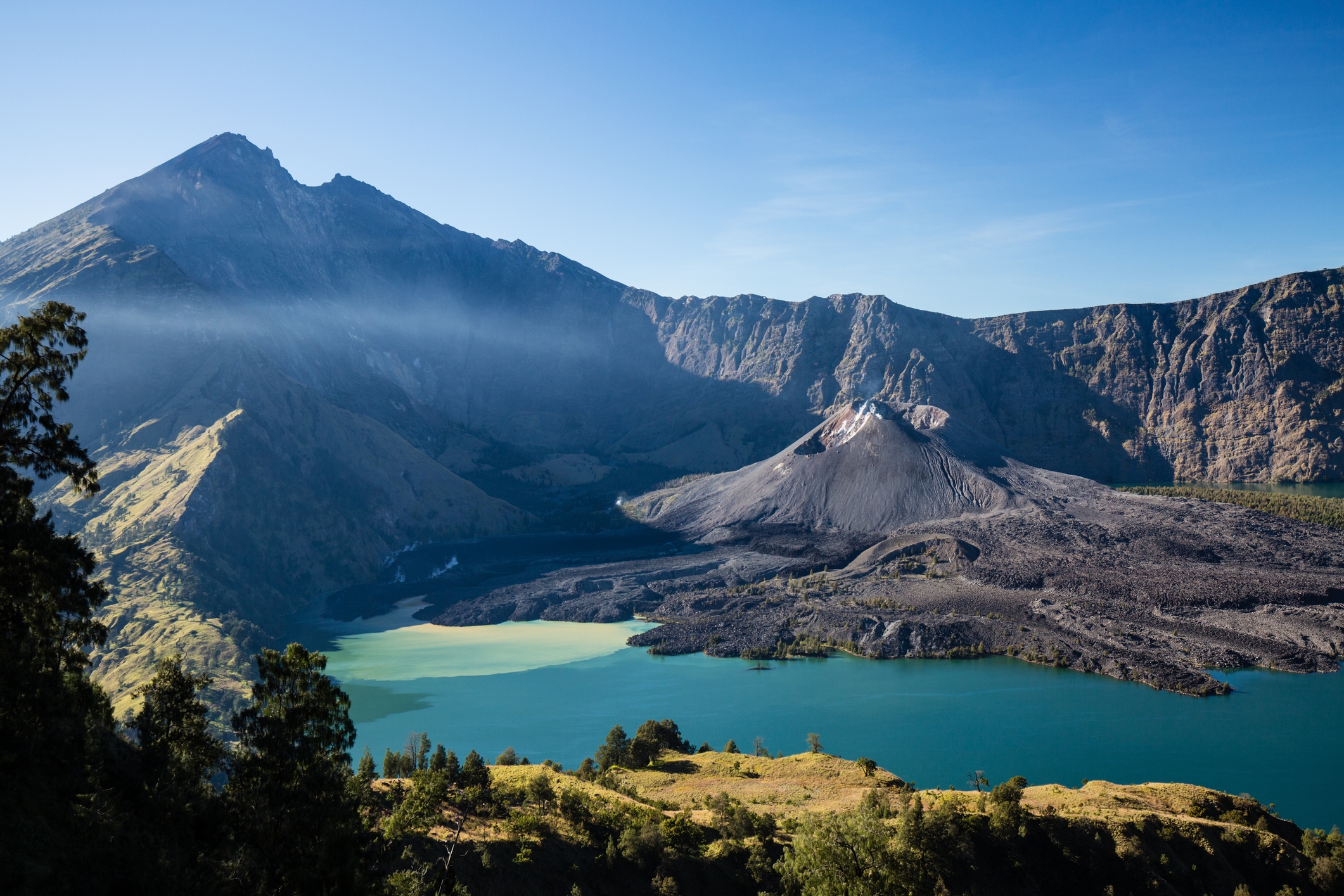
'If you could swim anywhere in the world right, where would you go?'
Rebecca: 'I'm going to have to message you about this, because I'm going to forget the name, but there's this dormant volcano that's now filled with water at the top, and you hike up it and then you can swim across it. I need to try to remember where it is. I was reading about it in National Geographic.'
There's one like that in Indonesia called Rinjani. Is that it?
Rebecca: 'Yes. It looks amazing. I've never been to Indonesia either, and I would love to go. I would love to do the island swims between some of the Greek archipelagos as well. My stepdad is half Greek and we spend a lot of time in Crete, and I think that would be a really amazing challenge. You basically just swim between islands and camp on the beach. But it's quite long. I think it's a week, and it's a lot of swimming.'
'Okay, my next trip. There we go.'
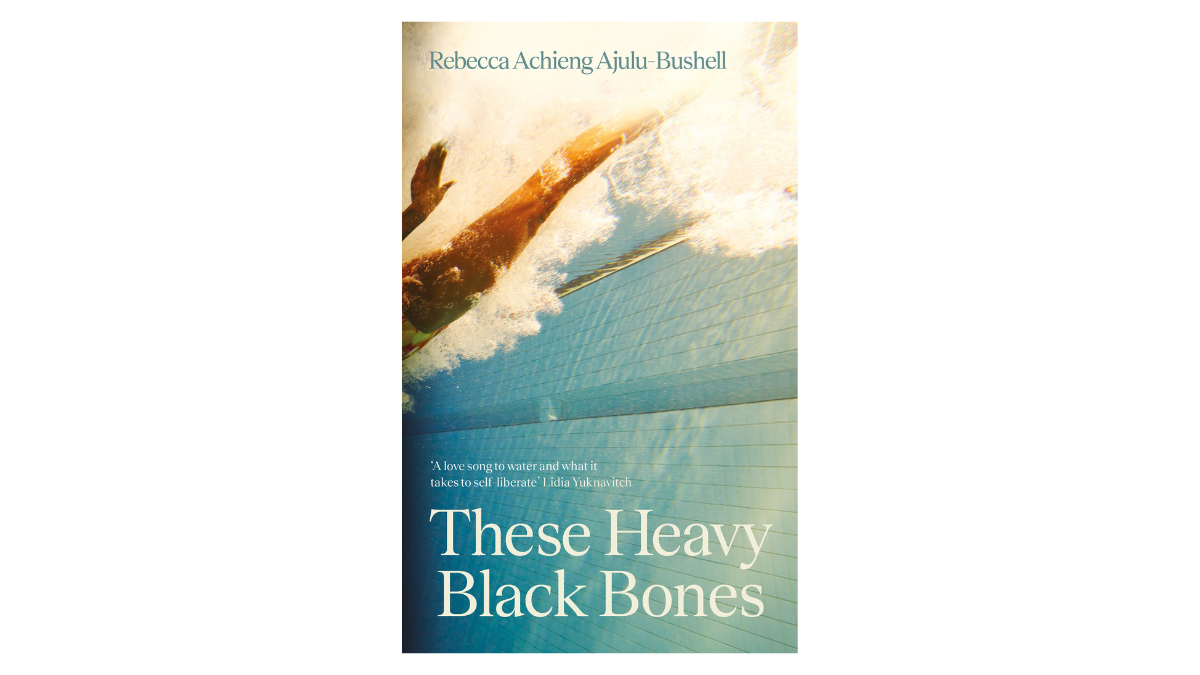
These Heavy Black Bones | Pre-order now
In Kenya the pool was green and surrounded by concrete so hot it burnt the soles of her small feet. She didn’t know any different. A decade later she would be double British Champion and the first Black woman ever to swim for Great Britain. But this story is not about making history...
As her body and mind are sharpened through gruelling training, press scrutiny and the harshness of adolescence, Rebecca questions who she is swimming for and what the onward journey to the Olympics will cost her.
A compulsive and unforgettable study of intensity, These Heavy Black Bones meditates on Blackness, identity and the ecstasy of peak physical performance. In stunning prose, Rebecca charts her career’s ascent, her singular love of the water, and lays bare the pressures within her swimming world.
Please follow the pre-order links below to get your copies: Waterstones, Amazon and Bookshop.org.
If you enjoyed this interview, please let us know in the comments section below. If you have any other questions, please don't hesitate to send them to us directly: marketing@swimtrek.com...


